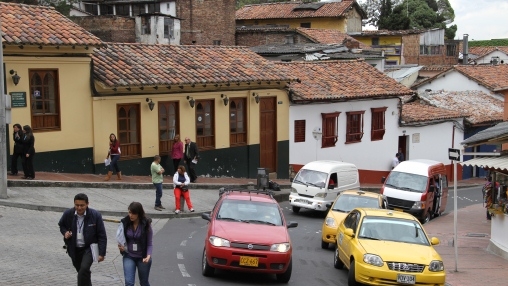Challenge
Colombia has a judicial system that only resolves claims involving the central state, with the most frequent claims classified into 5 major subjects: labor, torts, debts, tax and other issues. Judges mostly resolve all of these types of claims, and the resolution process is often time consuming and complex.
Processing a claim can take several years despite best efforts of the Judicial Branch to appoint new judges and establish strict judgment-per-month goals. Furthermore, most of the evidence for the claims consists of documents that must be provided by state agencies, whose delivery could take from 1 to 7 months after its request.
In July 2012, justice proceedings changed and an oral-based system was established. However, changing proceedings for new cases did not resolve the pending cases under the previous writing-based system. Because of that, the Judicial Branch implemented a Policy Plan focused on reducing the delays in the provision of justice services, looking to resolve all cases pending under the writing-based proceedings within 4 years.
Solution
In order to reach the goal of resolving the pending cases within 4 years, the Judicial Branch and the World Bank planned a stocktaking of writing-based pending claims to analyze bottlenecks and other delays. A team of experts analyzed every aspect of the judicial proceedings for these claims, including the court where the claim was initiated, the current procedural stage at the moment of the review of the case file, and the state agencies that are more frequently sued.
As a result of the study, experts provided the Judiciary detailed information on key issues such as the time spent in solving a claim, what the most frequent claims were, and where the bottlenecks were. The team also produced statistical data for each of the variables gathered, whose interpretation was validated through several focus groups and interviews with Judicial Branch officers.
Results
The stocktaking of 151,597 pending claims allowed for the creation of a database for the jurisdiction that identified 217 key variables. The statistical information gathered in the database and the final report provided the Judicial Branch with hard data to take action with a local focus, determining decongestion measures by district instead of applying general measures nationally. As a result, the Judiciary developed district-tailored decongestion plans that included measures such as courts specialization, priority intervention in old cases and claims redistribution according to the workloads of each district.
Bank Group Contribution
The World Bank financed this project through a Reimbursable Advisory Services operation worth US$648,00.
Moving Forward
The analytical output also articulated a modernization strategy for the Colombian Judicial Branch. Based on empirical findings, the Bank is supporting the development of workload and performance indicators in other jurisdictions, most recently in Civil and Family Courts.
Beneficiaries
The core beneficiaries of the final report were the National Planning Department, the Ministry of Justice, and the Judiciary. More broadly, the report benefited other stakeholders such as Congress, professional associations of judges, academic institutions, and civil society organizations, in addition to citizens benefitting from a more rapid settlement of judicial claims.
